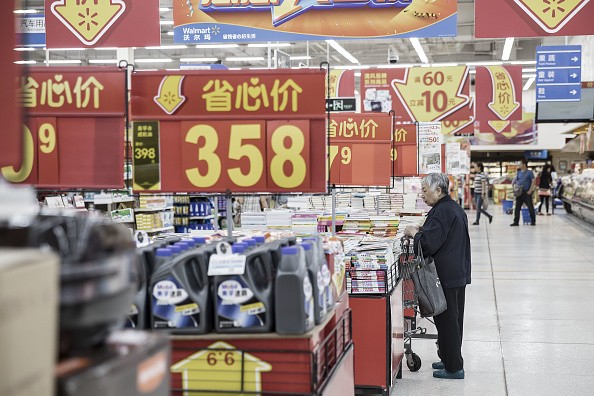Wal-Mart Stores Inc. sets eyes on Guangdong Province, a key manufacturing base and foreign trade hub, for its expansion. In the next five years, the U.S. retail giant will be opening more than 40 stores and a fresh food distribution center in the province.
On Thursday, Wal-Mart and the provincial government of Guangdong signed a strategic cooperation agreement on the plan in expanding the latter's business.
“As a major dynamic economic base in southern China, Guangdong is an important market for us. We will continue to grow in China and accelerate our development here,” Wal-Mart Global Executive Vice President and Wal-Mart International Chief Administrative Officer Scott Price said.
Wal-Mart also plans to increase its cooperation with the local government on local sourcing, retail innovation and development.
“We will continue to increase sourcing of Guangdong products and help more of them enter our global supply chain system,” Price said.
From the launch of its first China store located in Shenzhen in 1996, Wal-Mart has grown with more than 400 stores in the mainland, 92 of which are in Guangdong.
Upgrades in the logistics system and construction of a cold chain distribution center in Guangdong are also included in the investment plan.
The retail giant’s expansion plan in Guangdong was among the 14 agreements signed during the 2017 China (Guangdong)-U.S. Investment Cooperation Conference held in the provincial capital, Guangzhou, on Thursday.
$2.289 billion worth of investments were entailed in the contracts. The amount will fund a variety of areas, including finance, information technology, transportation, automobiles, intelligent manufacturing and environmental science.
China has grown to be the second largest U.S. investment destination. In 2015, more than $15 billion of direct investments were made by Chinese companies in the U.S., exceeding the American investments in China for the first time.
“Investment from China in the United States is just starting to gain momentum, and the prospects for U.S. investment in China are still huge,” said Vice Minister of Commerce Yu Jianping.
The conference aimed to take actions on boosting bilateral trade and investments as agreed upon by Chinese President Xi Jinping and U.S. President Donald Trump in their meeting held earlier this month.
Last year, more than 20 percent of the China-U.S. trade volume was accounted from Guangdong. The province has drawn in $8.51 billion actual investment from the U.S., while Guangdong businesses have made $4.17 billion worth of investments in the U.S.
According to Guangdong Governor Ma Xingrui, the province provides “very broad market prospects.”
“The volume of Guangdong's imports of goods will surpass $360 billion in 2020. The province will have mass demand for high-tech products, modern services and high-quality consumer goods and foods,” Ma said.
The governor also said that the provincial government will “give great support” to local firms to create overseas warehouses, exhibition centers and branches, aiming to increase the volume of Guangdong products exported to the U.S.
Wal-Mart’s expansion in Guangdong is expected to bring developments both to the company and to the province.






















